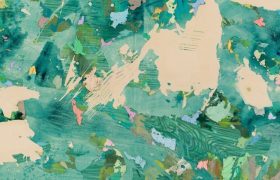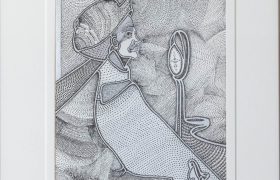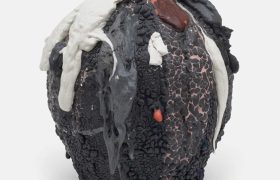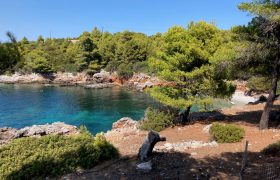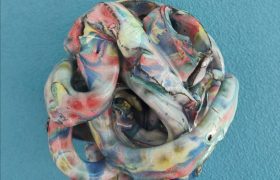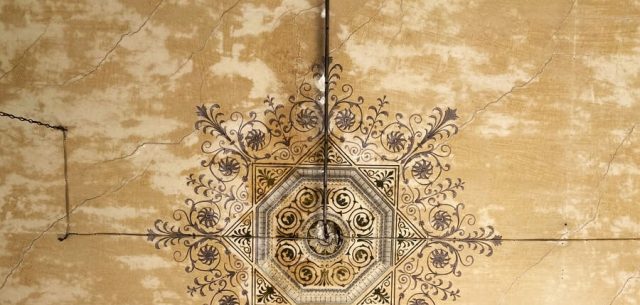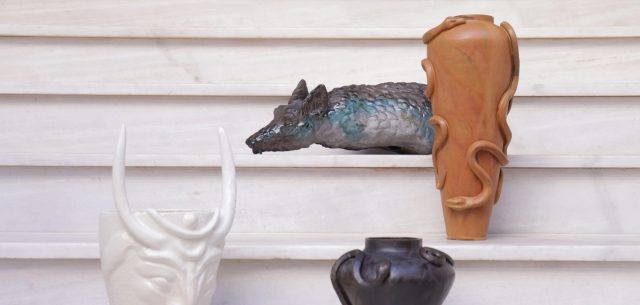Maro Fasouli’s Evocative Woven Sculptures
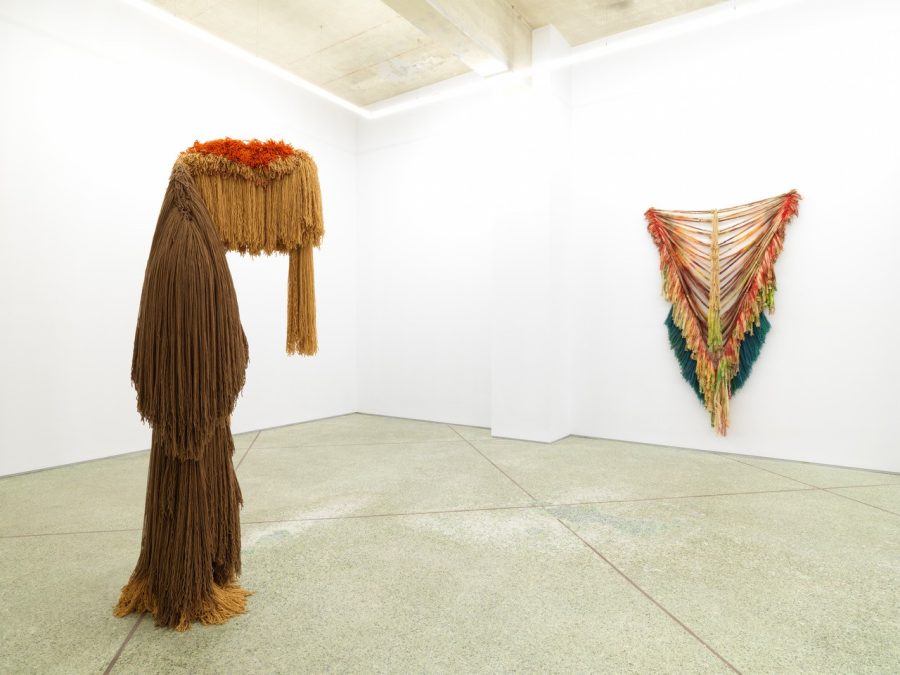
What’s On: CAN Christina Androulidaki Gallery presents Maro Fasouli’s third solo exhibition, titled A House as Big as You Need and Land as Far as You Can See. The exhibition delves into Fasouli’s ongoing exploration of traditional weaving and architecture, drawing inspiration from anonymous folk art and the wild, rocky landscape of Exo Meria in Tinos. Through her work, the artist explores the breakdown of boundaries between genders, private and public spaces, the individual and the collective, transforming the gallery into a symbolic house without walls.
 The phrase “A House as Big as You Need and Land as Far as You Can See” is a traditional Greek expression that reflects a philosophy of life regarding space and ownership. In essence, it suggests that one should have a house only as large as needed to live comfortably, and land as vast as one can manage or utilize. This symbolic saying encourages moderation and warns against the excessive pursuit of material wealth and possessions. The house and land represent more than physical structures: the house symbolizes inner life and the space we inhabit, while the land reflects our outer life and connection to the world and nature around us.
The phrase “A House as Big as You Need and Land as Far as You Can See” is a traditional Greek expression that reflects a philosophy of life regarding space and ownership. In essence, it suggests that one should have a house only as large as needed to live comfortably, and land as vast as one can manage or utilize. This symbolic saying encourages moderation and warns against the excessive pursuit of material wealth and possessions. The house and land represent more than physical structures: the house symbolizes inner life and the space we inhabit, while the land reflects our outer life and connection to the world and nature around us.
The landscape of Tinos, particularly the abandoned terrain where she worked during the Kinono Residency in the village of Ismail in 2022, has profoundly influenced the body of work that has since emerged from her studio. In Exo Meria of Tinos, the buildings are predominantly small, single-room, low-lying farmhouses with minimal openings and walls made of dry stone (constructed without binding materials like cement or mortar). These structures are built by carefully stacking stones one upon the other, allowing for natural water drainage and providing protection against the island’s strong winds. In Ismail, Fasouli drew on this traditional stone masonry, transforming an abandoned house into a fort (installation titled Vallation, 2022) by wrapping it entirely with reeds and woolen yarn—local natural materials that gradually dissolve over time, peacefully returning to earth without harming the structure or disrupting the landscape.
In her exhibition at CAN, the artist deepens this exploration, incorporating elements of the rural landscape into the gallery space. Sculptures evoking primordial forms, apotropaic figures, and architectural remnants are juxtaposed with shapes reminiscent of skinned animals or rocks set before a ruined house. The house’s entrance, crafted from a wooden weaving beam (a part of a loom) with the carved initials “DG” of its owner, stands alone—like an improvised coat of arms—against the backdrop of a vast, symbolic agricultural landscape.
In this allegorical exploration, Fasouli employs her works—some resembling tapestries or three-dimensional collages of yarn and fabric, while others extend into space or onto walls as sculptures—as a narrative tool to examine the relationship between the human body and space. Throughout the creative process, she redefines the role of her body, using it as a measuring instrument, with her palm, forearm, or entire figure determining the dimensions and forms of the pieces.
In this way, the artist highlights the embodied nature of weaving, delving into its anthropological and social dimensions while working with a keen awareness of the female experience. She uses the house as a symbol of feminine space and its expansion into the landscape. The concept of “A House as Far as You Can See” reflects the idea of a space traditionally built by men, yet serving as the “hearth”—a home that shelters and protects all family members, while also acting as the woman’s shell, the place where she lived, worked, and created. In Fasouli’s approach, the house is not limited by fixed boundaries; instead, it opens up and expands, merging seamlessly with the ground.
In her creative process, Fasouli places emphasis not on the perfect, strictly regulated outcome, but on the process and preparation. The body itself becomes a measuring tool, guiding the work’s development. Unlike traditional weavers, she embraces a personal approach that prioritizes free expression, welcoming vibrant, unexpected colors, mistakes, tears, imperfections, frays, and holes, and elevating them as essential elements in the composition of her pieces. Her handmade works, often deliberately left “unfinished” in line with traditional weaving practices, reflect her unique aesthetic.
Maro Fasouli
A House as Big as You Need and Land as Far as You Can See
When: Until 23 November 2024
Where: CAN Christina Androulidaki Gallery, Athens

